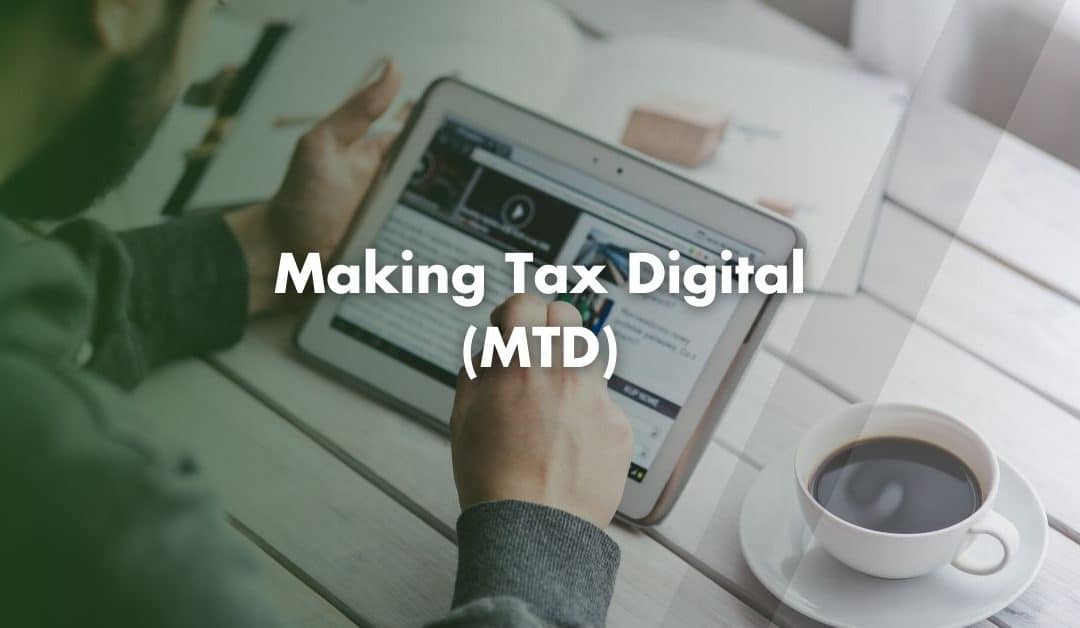Making Tax Digital (MTD) is a government initiative to modernise the tax system by encouraging businesses, landlords and individuals to keep digital records and submit tax information using compatible software.
The goal is to simplify tax compliance and ensure tax is reported more accurately, while reducing human error. Over time, paper-based systems will be completely replaced by digital processes.
Why Does Making Tax Digital Matter?
MTD is more than a technology upgrade. It marks a shift in how taxes are managed. Digital record-keeping ensures better accuracy and improves visibility over your financial position.
This initiative saves time and helps taxpayers understand their obligations more clearly. For businesses, this can mean better financial forecasting and fewer surprises when tax deadlines approach.
MTD for Income Tax Self Assessment (ITSA)
The next phase targets the self-employed and landlords who file Income Tax Self Assessments. The rollout is phased according to income levels:
- From April 2026 – Income over £50,000
- From April 2027 – Income between £30,000 and £50,000
- From 2028 (expected) – Income over £20,000 (unconfirmed)
If you fall into these brackets, you will be required to:
- Maintain digital income and expense records
- Submit quarterly updates using MTD-approved software
- Send a final declaration at year-end
This will replace the traditional Self Assessment process and provide a clearer picture of your tax liabilities throughout the year.
MTD for Landlords
Landlords will need to comply with MTD if their rental income meets the same thresholds as the self-employed:
- From April 2026 – Income over £50,000
- From April 2027 – Income between £30,000 and £50,000
- From 2028 (expected) – Income over £20,000 (unconfirmed)
You will follow the same routine:
- Maintain digital income and expense records
- Submit quarterly updates using MTD-approved software
- Send a final declaration at year-end
Starting early can help avoid disruption later. Choose suitable software and get comfortable with the process now.
MTD for VAT
The first stage of MTD launched in April 2019 and applied to VAT-registered businesses with turnover above £85,000. As of April 2022, all VAT-registered businesses must comply, regardless of turnover.
Since November 2022, it has been compulsory for all VAT-registered businesses to:
- Keep digital records of all VAT transactions
- Use MTD-compatible software
- Submit VAT returns through that software
HMRC no longer accept traditional methods such as paper returns or HMRC’s old online VAT portal. Businesses must act fast to stay compliant and avoid penalties.
Choosing the Right Software
To comply with MTD, you must use HMRC-recognised accounting software. These tools should:
- Keep digital financial records
- Automatically update and submit tax information to HMRC
- Generate final declarations for year-end reporting
Popular options include QuickBooks and Xero. If you use spreadsheets, you may need bridging software to format and submit your data correctly. Ensure your tools are compatible and linked appropriately to avoid compliance issues.
Registering for Making Tax Digital
Registration varies depending on your tax situation:
- VAT – Sign up via HMRC’s online portal
- Income Tax – Voluntary pilot programmes are open if you meet the criteria
Joining early gives you more time to learn the system, spot any issues and avoid last-minute panic.
Who Is Exempt from MTD?
Some individuals and businesses may be exempt, including:
- Those with a registered Power of Attorney
- Non-resident entertainers or sportspeople with no UK income
- People unable to use digital systems due to age, disability or remote location (but must be approved by HMRC on a case-by-case basis)
HMRC is currently developing legislation to finalise the list of exemptions. They will be announce this closer to full rollout.
Penalties for Non-Compliance
Failing to meet MTD requirements can result in penalties. These include fines for:
- Missing quarterly deadlines
- Not maintaining digital records
- Submitting incorrect or incomplete data
Late VAT submissions now earn penalty points, with a £200 fine once thresholds are met. Separate interest applies for late payment.
Contact Us
We are not just accountants; we are Chartered Accountants with one of the most reputable and premium accounting bodies. We are registered and regulated by ACCA; so you can rest assured that you are in good hands. Knowing this, don’t hesitate to get in touch with us if you require assistance: Pi Accountancy | Contact Us
This article is for general informational purposes only and does not constitute legal or financial advice. While we aim to keep our content up to date and accurate, UK tax laws and regulations are subject to change. Please speak to an accountant or tax professional for advice tailored to your individual circumstances. Pi Accountancy accepts no responsibility for any issues arising from reliance on the information provided.

